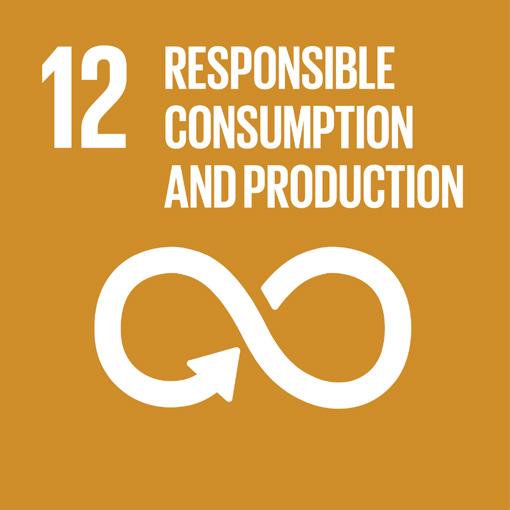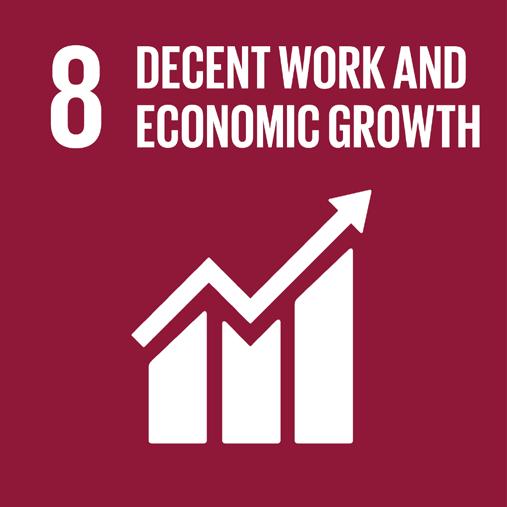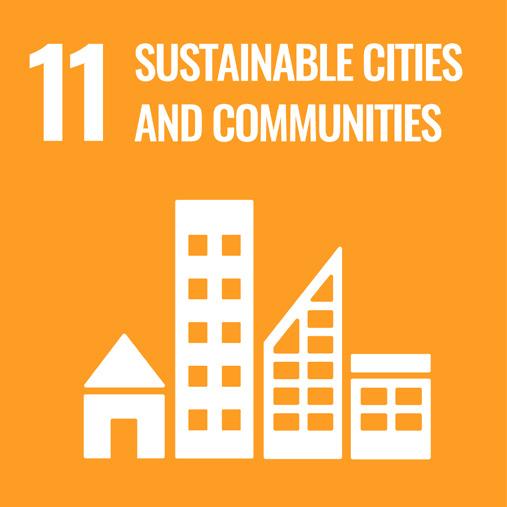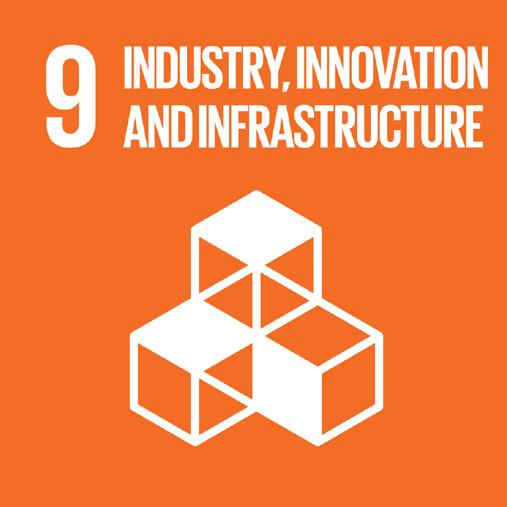
4 minute read
UN Sustainability Goals
As part of the Global Compact Initiative, the Olav Thon Group wishes to contribute to the achievement of the UN agenda for 2030.
The Olav Thon Group is of the opinion that in order to create an actual contribution to the UN agenda for 2030 and the sustainability goals, it is essential to point out the most relevant goals that the group can contribute to achieving. In relation to this, a project has been carried out to identify which of the UN's sustainability goals are most relevant for the Olav Thon Group to focus on.
THE PROJECT
The group management in the Olav Thon Group, together with the group's sustainability adviser, has carried out a survey of the group's value chain, in accordance with GRI and the Global Compact's guide for designating the UN's sustainability goals. Based on this survey, an analysis has been made of which of the sustainability goals the group has the greatest impact on, both in a positive and negative sense. It will then be established where in the value chain this influence occurs, as well as which sub-goals are most relevant to contribute to achieving the goals. In addition to this, the Olav Thon Group has selected which of the measurable indicators it seeks to report progress on. Some of the indicators are rewritten to deal with own operations, but with the same principles as the original indicators.
DESIGNATED SUSTAINABILITY GOALS
The Olav Thon Group has identified four sustainability goals that stand out as the most relevant goals that the group can contribute to achieving:
• 12 - Responsible consumption and production • 8 - Decent work and economic growth • 11 - Sustainable cities and communities • 9 - Innovation and infrastructure
In addition to pointing out these goals, we have also chosen to point out which of the sub-goals are the most relevant to work with. We have also chosen to point out which of the indicators we seek to report on, in order to measure the Olav Thon Group's contribution.*
THE OLAV THON GROUP CONTRIBUTION
The Olav Thon Group wants to contribute by minimising its negative impact, as well as increasing its positive impact, on the UN's sustainability goals. As a large buyer, a group with many customers and employees and as a cornerstone company and district developer, the Olav Thon Group can contribute in many ways. We will ensure we buy the raw materials that are best for the environment and social conditions. We will reduce our consumption in production and operation. We will influence our suppliers and plan for the services we offer our customers to become more sustainable. We must streamline our daily operations. And we must be inclusive and contribute to a diverse business community.
We have developed more in-depth documents for how we have arrived at what impact the Olav Thon Group has on the various sustainability goals and how we will contribute. These documents are published on www.olavthon.no.
Due to the increased focus on the sustainability strategy, as well as future legal requirements, the work of operationalising the sustainability goals has been postponed. This work will continue in 2022. There is therefore limited opportunity for reporting on the targets for the calendar year 2021. In addition, it is expected that the new sustainability strategy will have an impact on which sustainability goals will be most relevant for the Olav Thon Group in the future. All goals, targets and indicators will therefore be revised in 2022 in accordance with the new strategy. Furthermore, there will also be a clearer link between significant themes, measures and sustainability goals. The strategy will also lead to a clearer operationalisation and a more concrete and clearer contribution to the goals. It has been decided that the tool SDG Action Manager, developed by B Lab and the UN Global Compact, will be used as an evaluation tool for the work with the sustainability goals.




VALUE CHAIN
• Raw materials • Suppliers • Incoming logistics • The company's activities and operations • Use of product/service • Discontinuation of product/service
SUB-GOALS
12.2, 12.3, 12.5 and 12.6
INDICATORS
12.2.1, 12.2.2, 12.3.1, 12.5.1 and 12.6.1
VALUE CHAIN
• Raw materials • Suppliers • The company's activities and operations
SUB-GOALS
8.2, 8.4, 8.5, 8.7 and 8.8
INDICATORS
8.2.1, 8.4.1, 8.4.2, 8.5.1 and 8.8.1
VALUE CHAIN
• Incoming logistics • The company's activities and operations
SUB-GOALS
11.3, 11.4, 11.6 and 11.7
INDICATORS
11.4.1, 11.7.1 and 11.7.2
VALUE CHAIN
• Raw materials • Incoming logistics
SUB-GOALS
9.1 and 9.4
INDICATORS 9.1.2 and 9.4.1









